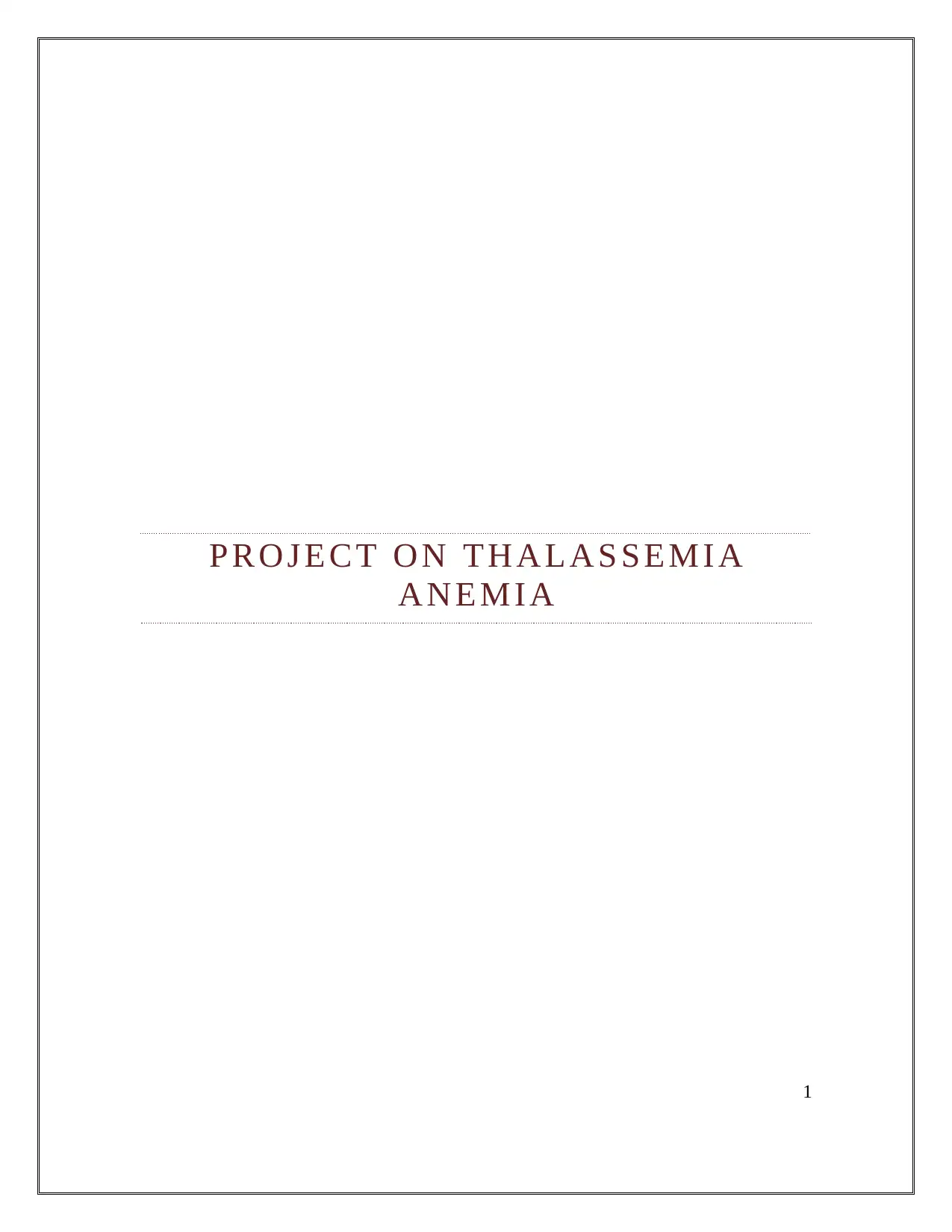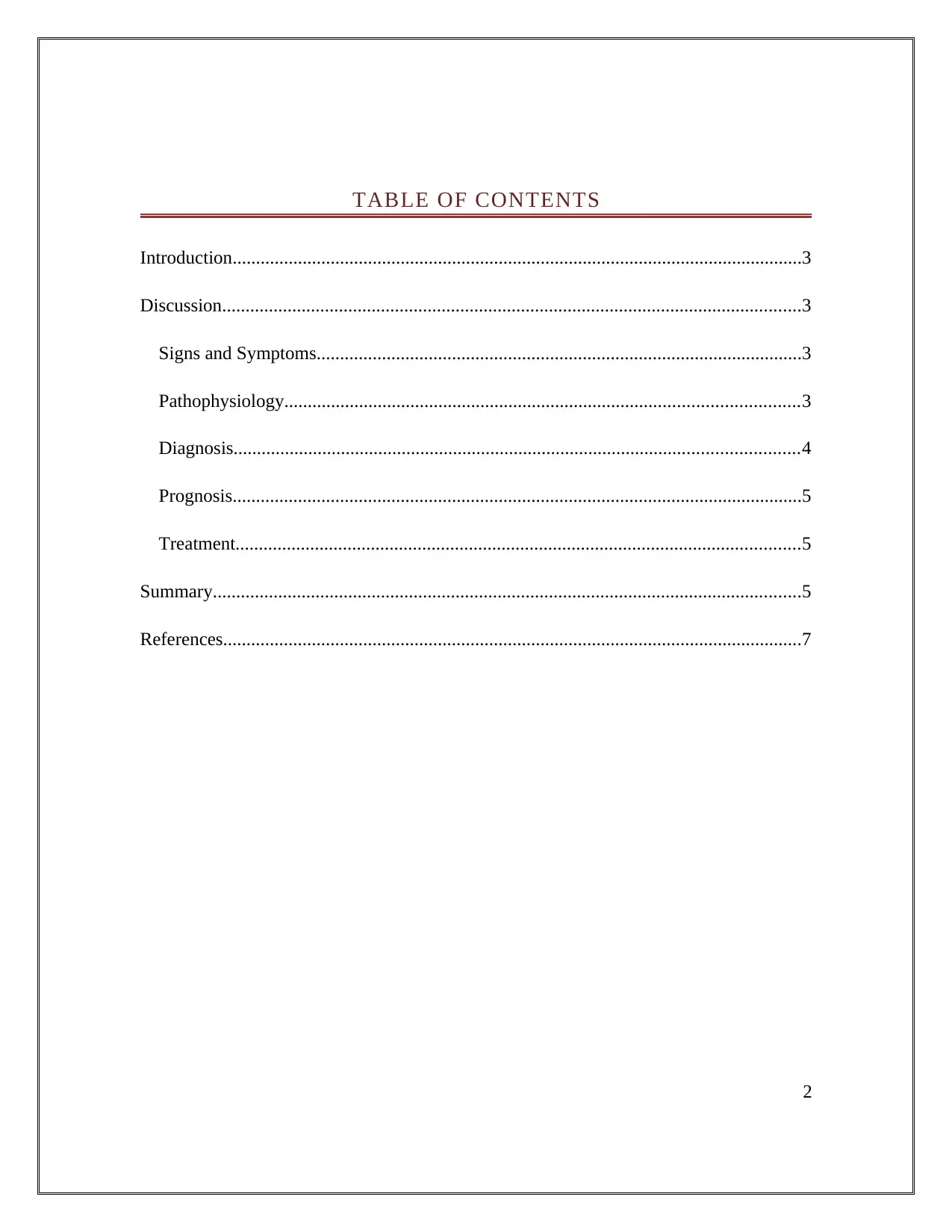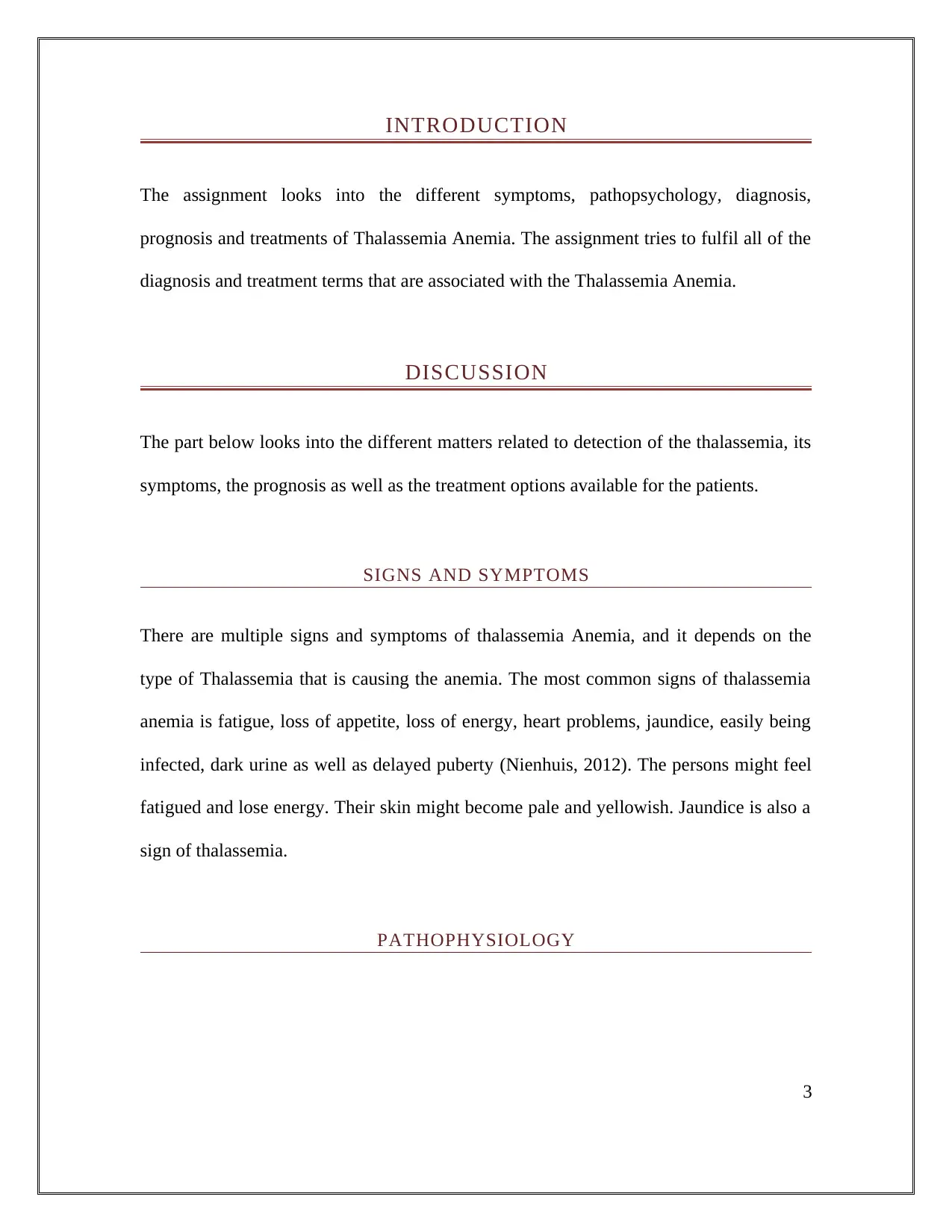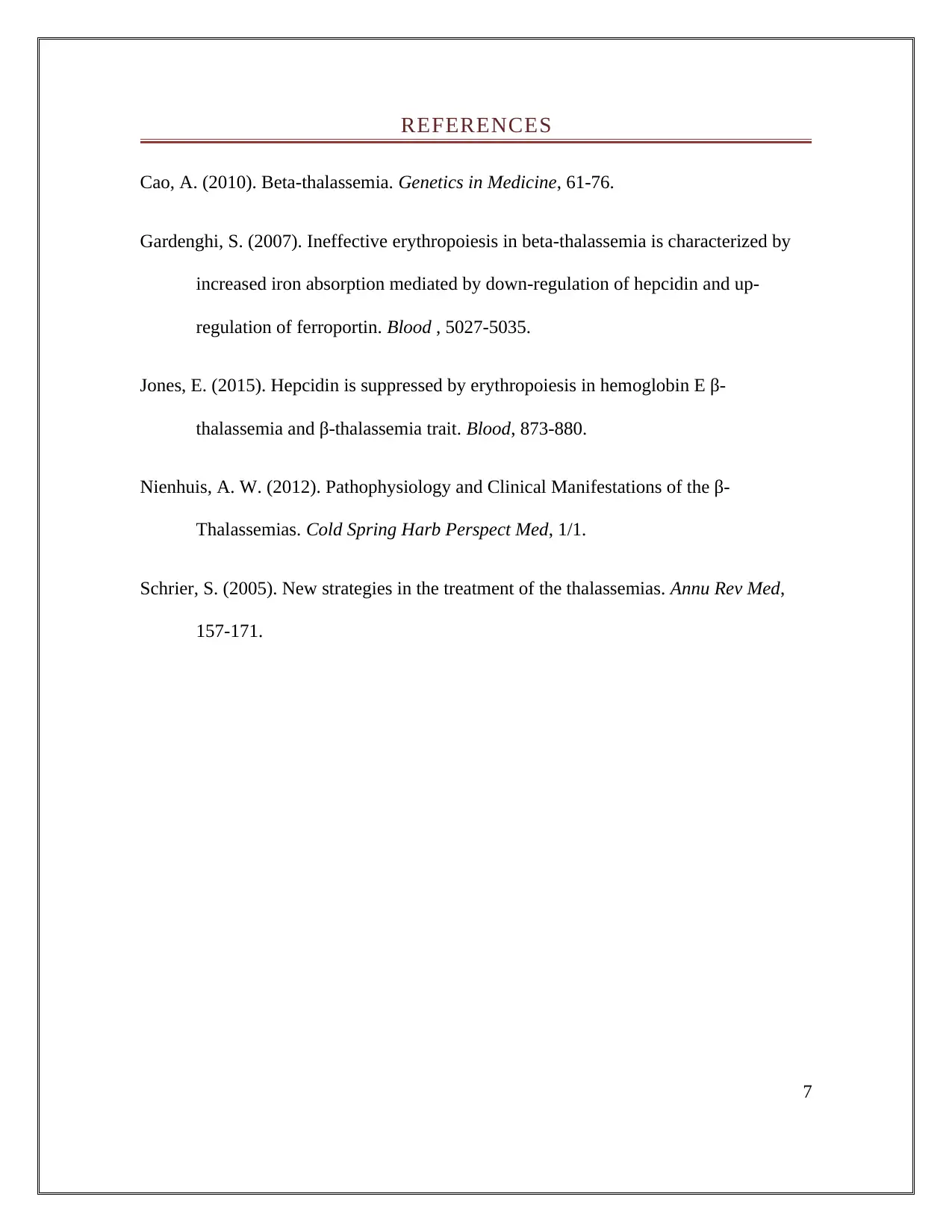Thalassemia Anemia Project
VerifiedAdded on 2019/09/13
|7
|740
|452
Report
AI Summary
This report provides a comprehensive overview of Thalassemia Anemia, covering its signs and symptoms, pathophysiology, diagnosis, prognosis, and treatment options. The introduction establishes the report's focus on understanding the various aspects of Thalassemia Anemia. The discussion section delves into the specifics, detailing common signs and symptoms such as fatigue, loss of appetite, jaundice, and susceptibility to infections. The pathophysiology section explains the underlying mechanisms of the disease, including factors like overproduction of certain hemoglobins and ineffective erythropoiesis. The report also outlines diagnostic methods, primarily relying on blood tests to identify abnormal red blood cells and hemoglobin types. The prognosis section discusses the potential long-term effects and challenges faced by individuals with Thalassemia, differentiating between the milder forms and the more severe Thalassemia Major. Treatment options are explored, ranging from supplemental therapies for milder cases to regular blood transfusions, bone marrow transplants, and genetic treatments for more severe cases. The summary reiterates the key findings, emphasizing the variability in symptoms and treatment approaches depending on the type and severity of Thalassemia. The report concludes with a list of references, citing relevant research articles and publications.
1 out of 7














![[object Object]](/_next/static/media/star-bottom.7253800d.svg)